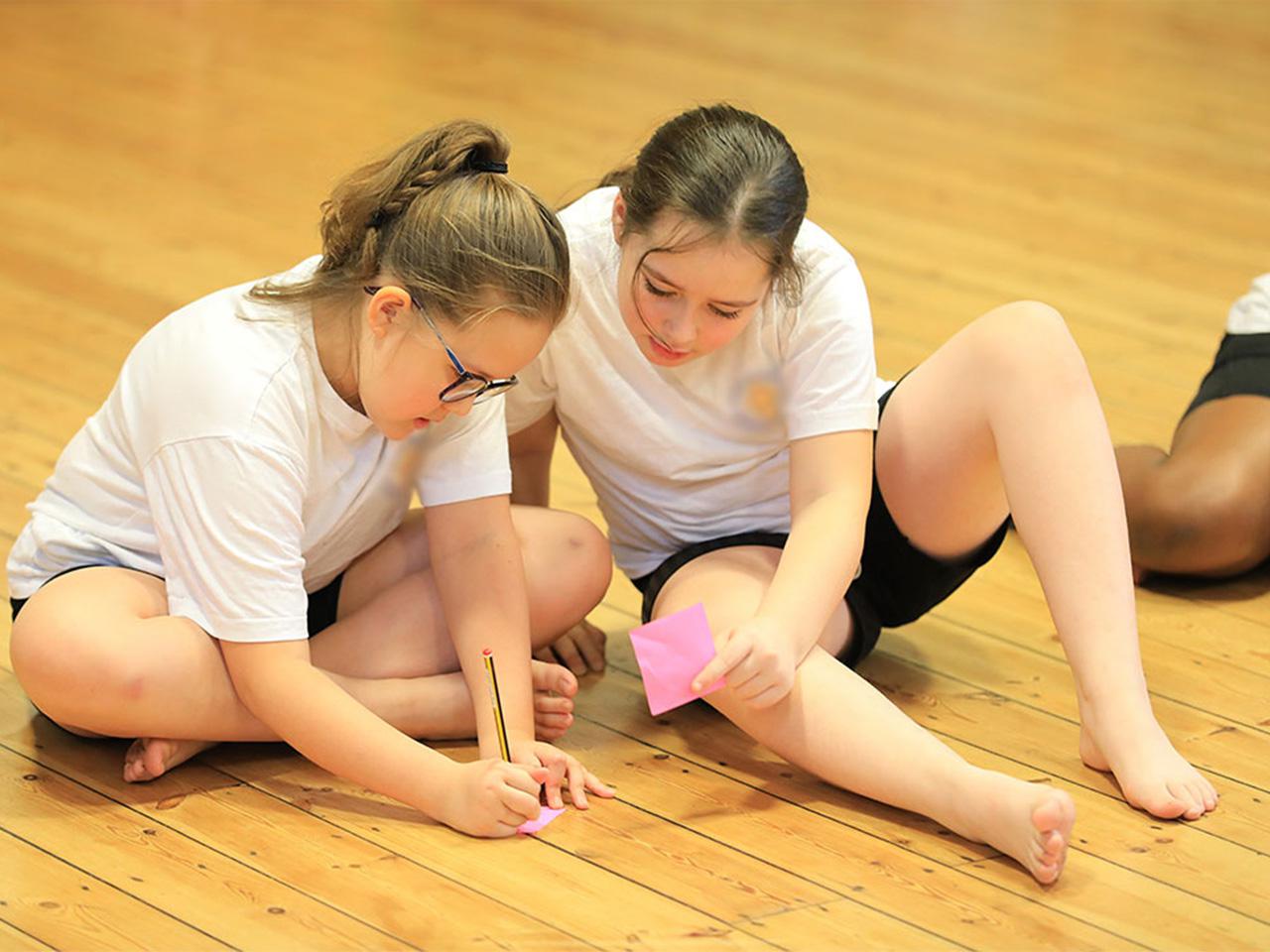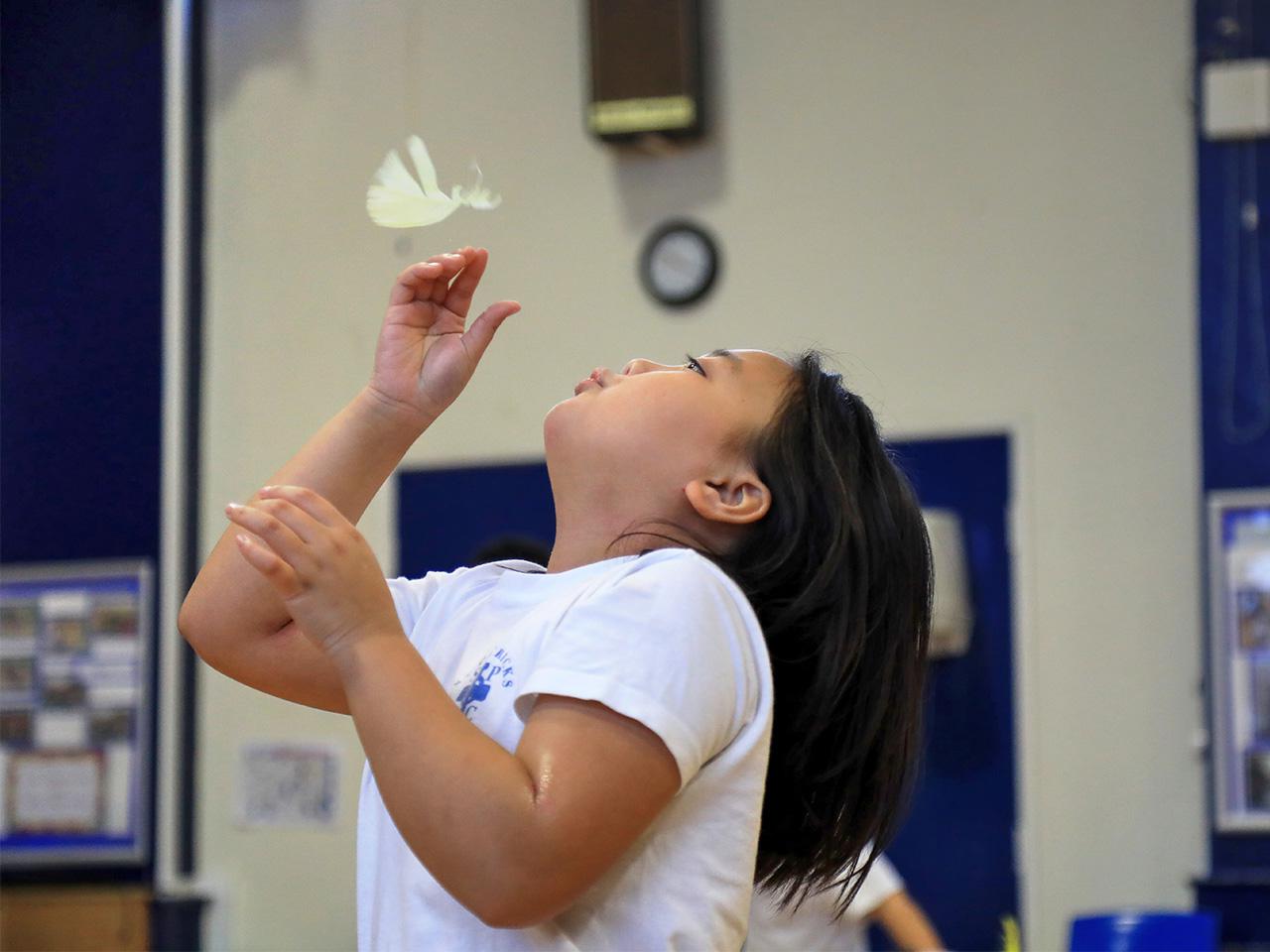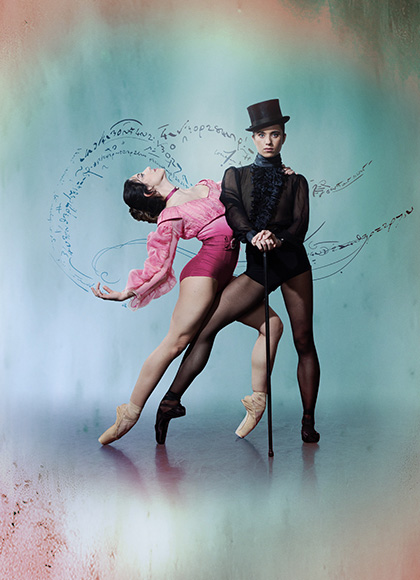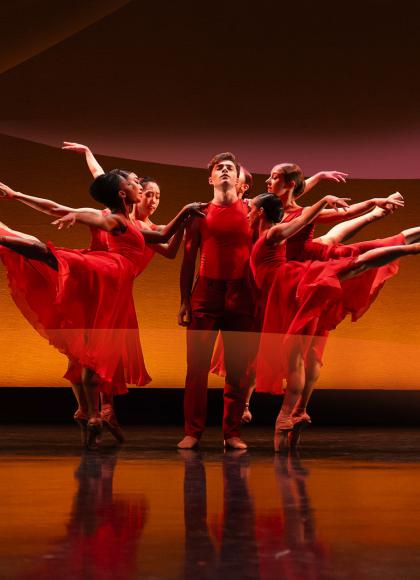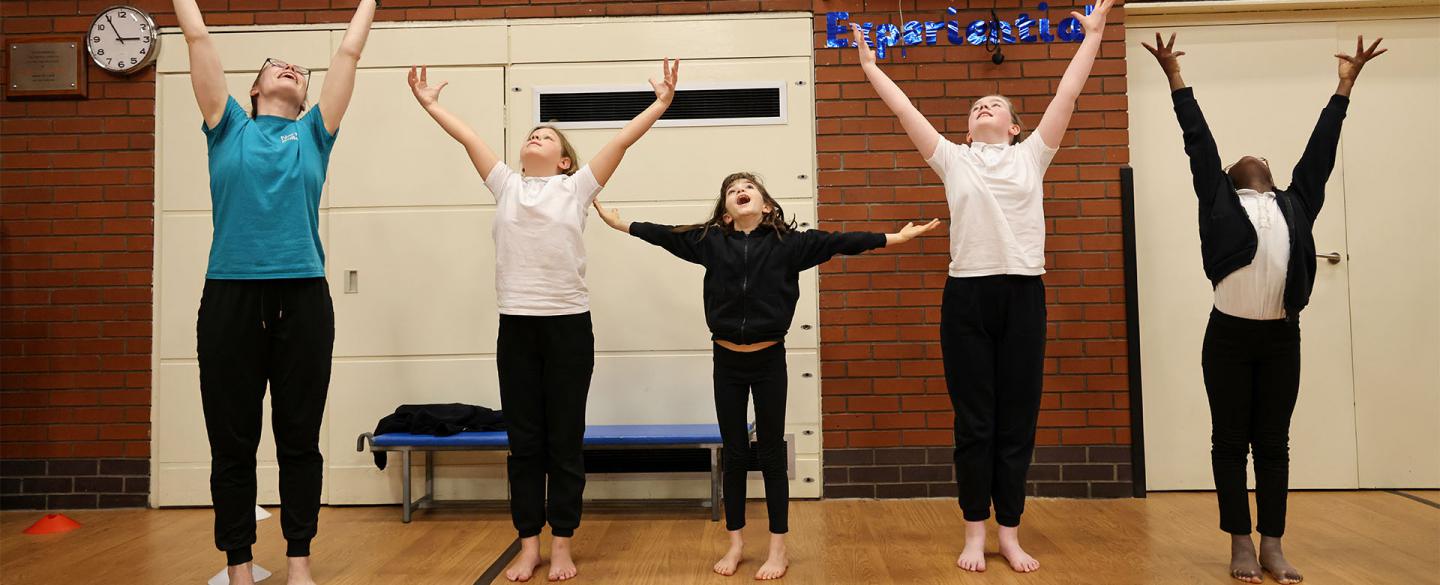
Rise launched in September 2019 with five schools from Leeds, Bradford and Huddersfield.
Since then we have delivered 50 workshops, held sharings at each school for peers, family and friends and had a trip to Leeds Grand Theatre to watch Northern Ballet’s production of Cinderella.
As part of Rise, we are looking at whether the approach and methods we use to deliver the sessions over a 10 week period improve the health and wellbeing of the children we are working with. More in-depth research is being conducted with one school, St Patrick’s Catholic Primary School in Leeds. This research is being conducted by Dr Louise McDowall (PhD), Research Fellow in Exercise and Health Psychology, University of Leeds. Dr McDowall tells us about her involvement in the project and briefly explains her methodology.
‘My interest is in research that advances understanding of the body and the benefits engagement in movement and physical activity can have upon quality of life within various populations.
So, when Leanne Kirkham, Director of Learning at Northern Ballet, and I initially began to talk about a potential partnership through the Rise project, it seemed a natural fit given the above and my background as a community dance artist.
The aims of the study are twofold:
(a) To explore the impact of two 10 week dance interventions (Rise) delivered over two years, on the resilience, body confidence, self-expression, communication and adherence of children living in deprived inner-city communities.
(b) Obtain impact data regarding the efficacy of the dance intervention (Rise) as a strategy for enhancing resilience, body confidence, communication skills, self-expression and adherence of children from the perspective of schoolteachers.
This research is a multi-method study, so it involves both quantitative and qualitative methods. It uses an ethnographic approach, meaning I explore the behaviours, perspectives and experiences of children in situ through immersion in their environment (i.e. a dance session at school).
Pupils and teachers will complete two self-report (or pupil observation) questionnaires designed to address markers of resilience, body confidence, self-expression and communication at the beginning and end of the 10 week block. Questions include:
-
Do you have a positive, can-do attitude when approaching something new for the first time? Could you share why?
-
How do you feel about what your body is able to do physically?
-
How easy do you find it to make friends and work in a group with other people? Could you share why?
-
When you take part in an activity (i.e. sports) where do you tend to stand (i.e. at the front, in the middle, at the back)? Why?
In addition to this pupils and teachers will also take part in one semi-structured focus group interview at the end of the 10 week block. This will explore questions such as:
-
Has this dance project helped you (or do you think it would help people) in any way to cope with some of the worries you have spoken about?
a) If so, can you talk a little about why and how?
b) If not, can you talk a little bit about why this is, and what further help/support is needed to tackle some of your concerns/worries? -
Before the Rise project started how did you feel about dance/ballet?
a) What about now? Do you still feel the same or do you feel differently?
b) If so, what’s changed?
c) Potential to probe same question but about self i.e. yourself
This design will then be replicated with a new cohort of children in 2020. Emerging data patterns between the first and second intervention data sets will be explored for comparison and/or consolidation to be made against the findings from year one.
Partnering with researchers from the University of Leeds enables the Rise project to develop an objective evidence base around the impact this project has upon pupils and teachers engaged in Rise. Doing so moves away from anecdotal evidencing (i.e. casual/informal collecting of information through hearsay, individual stories) towards a more robust and rigorous means of evidencing. In doing so, the research can build a more comprehensive picture through examining the impact of dance on markers of health and wellbeing among children from low socio-economic households; and the efficacy (successfulness) of Rise in addressing health and wellbeing issues for children.'
Our first block of 10 dance workshops have finished and Dr McDowall is now collecting the evaluation data ready to be analysed with the team. In the summer term we will share some of our early findings.
Rise is supported with funding from the Paul Hamlyn Foundation, The Liz and Terry Bramall Foundation, The Steel Charitable Trust and The D’Oyly Carte Charitable Trust.
